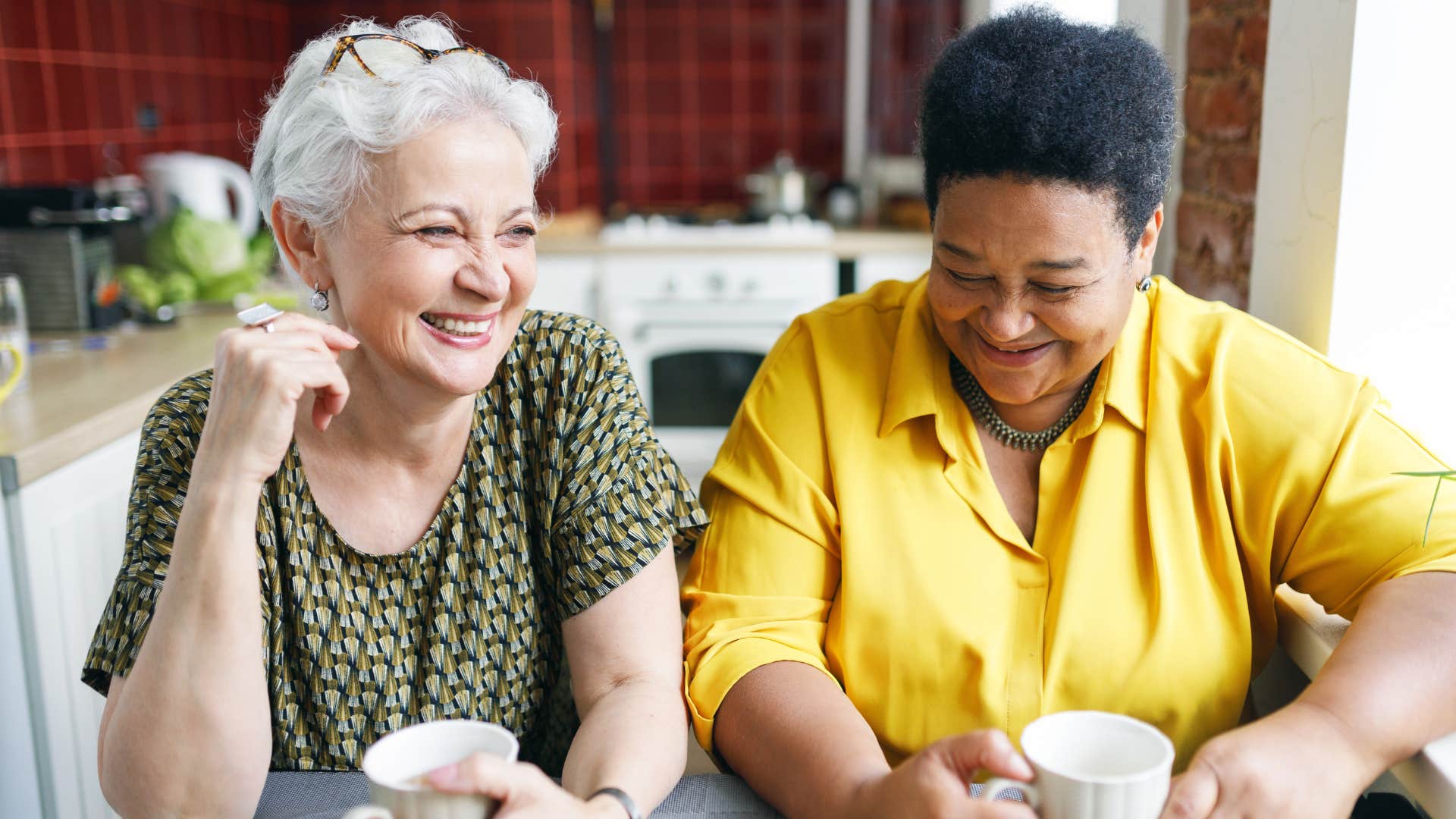6 Habits Boomers Think Are Considerate But Younger Generations Find Draining
Boomers think these habits are polite, but younger folks roll their eyes.
 mimagephotography | Canva
mimagephotography | Canva People are often easily offended by inconsiderate behavior, and this holds for each generation. But what is felt to be inconsiderate doesn't always stretch across generations.
Boomer habits like reaching out unannounced to touch someone, or sending a thank-you note for a little appreciation boost, can seem like draining tasks that require too much effort for no purpose to younger generations. But for Baby Boomers, and those who like to preserve family traditions, these acts are more than just considerate. They are the social food to nourish their souls.
Here are six habits that Baby Boomers think are considerate but younger generations find draining:
1. Calling people on the phone just to check in
 Prostock-studio via Shutterstock
Prostock-studio via Shutterstock
Therapist Dr. Gloria Brame, Ph.D., points out how Boomers remember the telephone company ads singing "Reach out and touch someone." It was a call to action to dial that hardwired phone and let someone on the other end know you care. In today's world, nobody wants to be touched as much anymore. Especially not young people, who might even find the old advertising line to be creepy.
Instead, younger generations far prefer a more polite approach: they like texting. They often find phone calls startling, intrusive, irritating, and even rude. They almost always associate phone calls with either annoying people who disregard social boundaries or old people, who also disregard social boundaries. It's a lose/lose situation for older adults who just want to hear a human voice.
My advice: text before you call. Consider texting the virtual equivalent of knocking on a closed door instead of pushing your way inside.
2. Handwriting thank you notes
 fizkes via Shutterstock
fizkes via Shutterstock
Life coach Kathy Ramsperger suggests that those handwritten Boomer thank-you notes also promote well-being and learning. A study comparing handwriting to typewriting as related to widespread brain connectivity found that when writing by hand, brain connectivity patterns were far more elaborate than when typewriting on a keyboard.
The study further explained how "spatiotemporal pattern from visual and proprioceptive information obtained through the precisely controlled hand movements when using a pen contributes extensively to the brain's connectivity patterns that promote learning." So, turns out: that handwritten thank-you note is not only an exercise in gratitude — it can actually make you smarter, too.
3. Showing up early
 PeopleImages.com - Yuri A via Shutterstock
PeopleImages.com - Yuri A via Shutterstock
Ironically, continues Dr. Brame, although I'm a Boomer, my jaw always clenched when parents and other relatives would show up too early to events at my house. I'd be applying makeup and have to rush to the door with only one eye done if I couldn't get my husband to run interference. It was embarrassing and frustrating.
I fully feel the dread of anyone dealing with over-eager relatives or friends who don't just show up early; they also make the situation even more awkward by teasing you about being miffed or making passive-aggressive comments that somehow make you the inconsiderate one, when they're the ones who showed up too early.
That's what makes this habit so draining. It's not just the logistical chaos of them arriving before you are ready; it's the emotional labor of managing their reactions to a situation they created. People may think showing up early demonstrates respect and eagerness, but what it actually does is create stress and awkwardness — and maybe that's why younger generations have ditched this habit.
4. Eating together as a family
 shurkin_son via Shutterstock
shurkin_son via Shutterstock
Wellness coach Lisa Newman attests that despite its demonstrated value, American cultural practices don’t always support families in eating together these days. While there is something magical about sharing food, remember that kids benefit from all kinds of routines and focused interactions. Time together doesn’t have to include a meal.
Newman elaborates, I have wonderful memories of the times my father took me out alone for meals, and I recreated that with my son in the form of a Saturday lunch at the only restaurant we could both agree on. Despite his teen reluctance to tell me anything, he couldn’t hold out for the entire meal, and I not only gained the benefit of knowing he had one full meal that week, but I also learned some interesting things about his world.
Two decades later, that restaurant chain is still “our” place. We didn’t have many family dinners, but we still sit down over coffee when we are together, thanks to the years of family breakfasts. We also still find regular times to talk despite now living halfway around the world from each other, and I credit this to the meal routines and other focused time together.
Keep the intended benefits in mind and feel free to come up with substitutions that work for your family, with no guilt necessary. Any positive family time together has benefits.
5. Making a home-cooked meal
 YAKOBCHUK VIACHESLAV via Shutterstock
YAKOBCHUK VIACHESLAV via Shutterstock
The science behind the relationship between home cooking and stress is mixed, explains psychologist Lisa Kaplin. On one hand, a 2021 study found positive psychological effects derived from home cooking during the COVID pandemic. On the other hand, a 2014 study revealed that home cooking disproportionally burdens mothers.
Kaplin recalls, in my childhood, my mother also did all of the cooking, but she wasn't so stressed out about it. Why is that? Because of her little flavor-enhancing shortcut: Crisco shortening. My mom cooked at least one part of most of our dinners with Crisco. As any child of the '70s and '80s will tell you, anything cooked in Crisco shortening is delicious. Of course, I don't use Crisco in my own modern-day cooking because we now know how terribly unhealthy it is.
I also don't use margarine. I don't buy soft drinks. I try to limit highly processed foods. In other words, my mom didn't have the same limitations in meal preparation as I do. My mom was a really happy camper, dinners were yummy, and, believe it or not, we were all fit and healthy.
Life was good in the Crisco years. Today, many women are given the primary responsibility of cooking the family meal, but with the added pressure of being told that our families will be dysfunctional if we don't cook Pinterest-worthy meals for them daily.
6. Choosing patience over impulse
 AlessandroBiascioli via Shutterstock
AlessandroBiascioli via Shutterstock
When action is often the name of the game, relationship coach Michelle E. Vasquez has heard, "I want it in 30 seconds, and I want it hot, tasty, and inexpensive. Since the advent of fast food, we seem to have become an instant gratification society."
One study published in Frontiers in Psychology indicated that instant gratification has made people more impulsive in their decision-making. They think of life as fast food, not fine dining. It becomes a disposable commodity instead of something to treasure and enjoy.
Will Curtis is YourTango's expert editor. Will has over 14 years of experience as an editor covering relationships, spirituality, and human interest topics.

